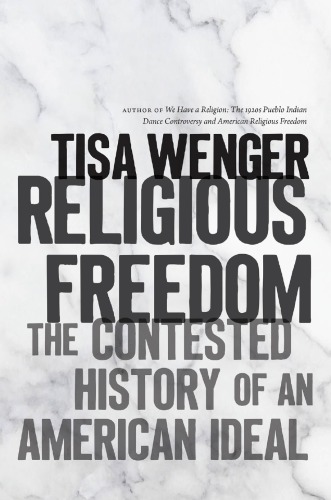
Religious Freedom
The Contested History of an American Ideal
کتاب های مرتبط
- اطلاعات
- نقد و بررسی
- دیدگاه کاربران
نقد و بررسی

October 30, 2017
Wenger (We Have a Religion) offers a sharp analysis of the intersection of religion, race, and empire in America between 1898 and World War II. Wenger focuses primarily on four groups that used religious concepts to frame themselves as fully civilized people equal to white Americans: Native Americans, Jewish Americans, African-Americans, and Filipinos living in the Philippines after it became a U.S. territory. In Wenger’s diagnosis, segments of Filipino and Native American populations aligned themselves with Christianity to prove they were not racially inferior “savages,” while Jewish Americans positioned themselves as practitioners of a white religion, not members of a race. African-Americans were less successful in Wenger’s estimation; groups such as the Nation of Islam found their religious freedom arguments dismissed as fraudulent and their faith practices condemned as “inauthentic, and overly political.” She employs the work of French philosopher Gilles Deleuze to argue that religion, race, and empire are not distinct from one other, and to demonstrate how subaltern groups were forced to adapt their religions to more closely hew to white Protestant Christian norms. This is a convincing and illuminating book about a little-studied facet of American religious history.

























دیدگاه کاربران